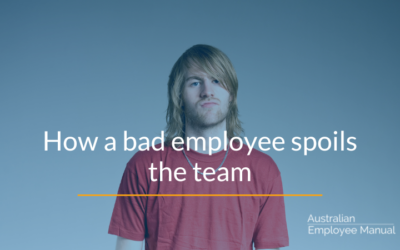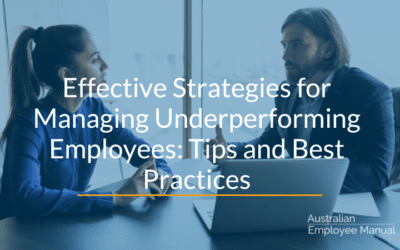Every business with more than one employee tends to have one: A unique thinker, maverick or radical employee. Someone who thinks outside the square, perhaps is constantly full of ideas, or someone who is amazing at finding solutions to problems.
The challenge is that often these sorts of people are not the easiest workmates to get along with. They may be stubborn, taciturn, full of so many ideas that nothing ever gets finished, abrasive or just so flighty that you can’t pin them down on anything. They may be emotive, personal values-driven or just downright rude.
How do you manage them? This is perhaps one of the hardest parts of HR. Managing someone who acts as a catalyst for change in the organisation but who has the social skills of a lone wolf. Their contribution at times may be breathtaking – but at other times they are divisive.
Managing a high-performing employee with poor social skills can be challenging, but it’s essential for their success and team dynamics. Here are some strategies:
Feedback and Awareness:
- Provide constructive feedback privately. Help them understand the impact of their behaviour on others.
- Raise awareness about their social skills deficit without making them feel criticized.
- Work with the person to determine which boundaries are non-breakable, and which ones can be fluid.
Skill Development:
- Offer training or coaching in communication, active listening, and empathy.
- Encourage them to observe and learn from colleagues who excel in social interactions.
Structured Communication:
- Set clear expectations for communication (e.g., regular team meetings, project updates).
- Use written communication (emails, chat) when possible to reduce face-to-face pressure.
Buddy System:
- Pair them with a colleague who has strong social skills.
- The buddy can provide guidance and model appropriate behaviour.
Recognise Their Strengths:
- Focus on their performance and contributions.
- Acknowledge their technical expertise and achievements.
Social Events and Team Building:
- Encourage participation in team activities.
- Create low-pressure social events to help them build relationships.
Remember, patience and empathy are crucial. Balancing their strengths with social growth is key to effective management.
Unfortunately, there may also come a time where the cost/benefit ratio tips the wrong way, and you may have to lose the unique thinker for the overall benefit of the organisation and the productivity of the team.
Employers have a duty of care to the other employees’ health and safety and need to ensure they take this responsibility seriously.




